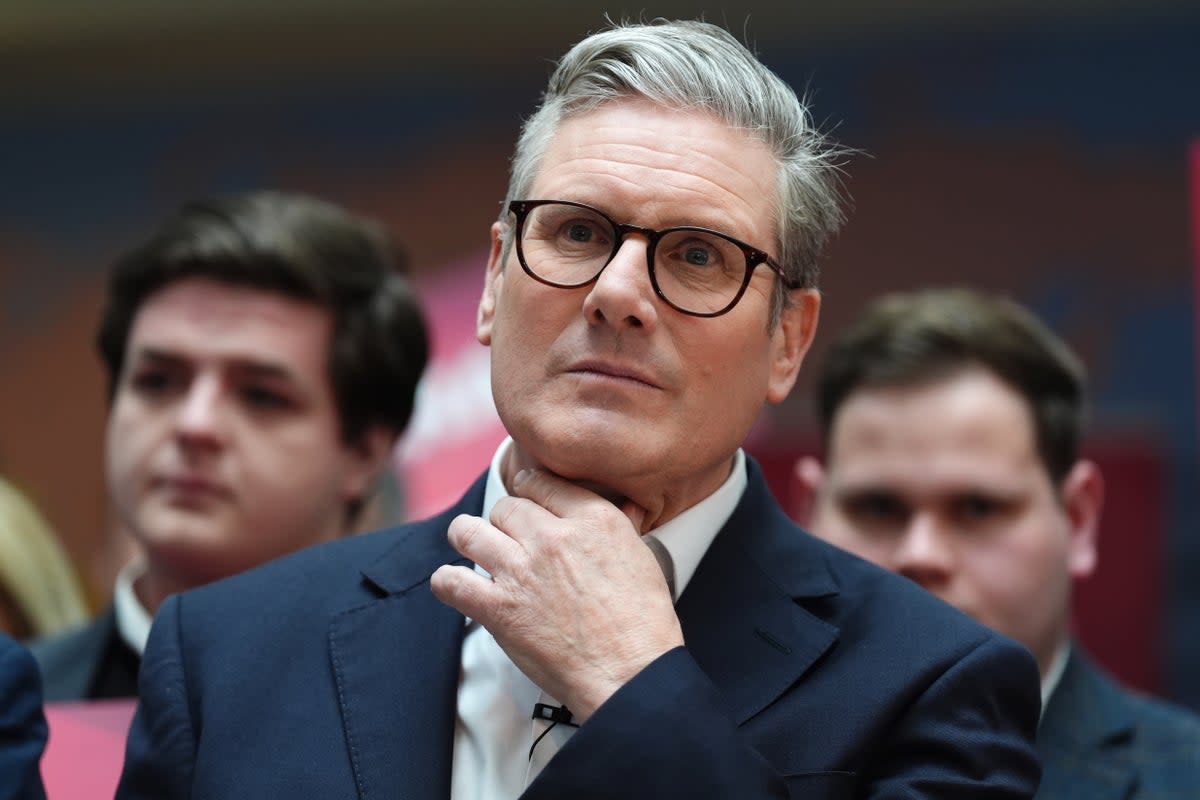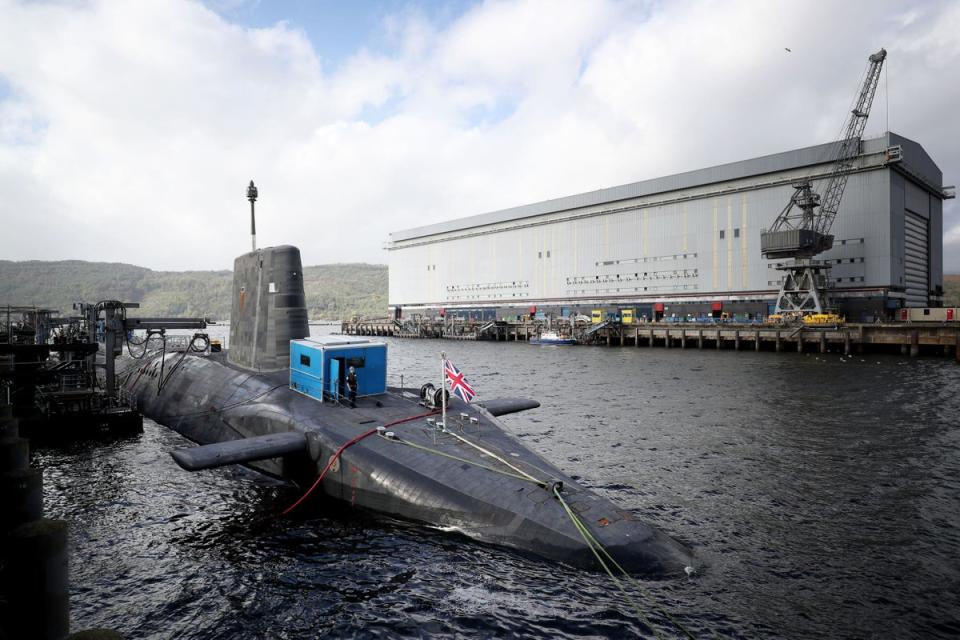UK’s nuclear deterrent key to Starmer’s plans to keep Britain safe

Sir Keir Starmer will pitch Labour as the “party of national security” as he seeks to switch attention to defence matters during the general election campaign.
The Labour leader is expected to meet with forces veterans and a group of his party’s candidates when he campaigns in the North West of England on Monday.
Sir Keir will reaffirm his commitment to a “nuclear deterrent triple lock” as well as his ambition to increase defence spending to 2.5 per cent of gross domestic product (GDP), a measure of the size of the economy.
Prime Minister Rishi Sunak has made clear he wants to meet the 2.5 per cent target by 2030 although Labour has so far declined to outline its timeline, only noting they would do so when economic conditions allow.
Labour says its nuclear deterrent triple lock involves: a commitment to construct the four new nuclear submarines in Barrow-in-Furness; maintaining Britain’s continuous at-sea deterrent; and the delivery of all future upgrades needed for the submarines to patrol the waters.
For updates on the general election - follow our live blog by clicking here

The Vanguard-class submarines are due to be replaced by the bigger Dreadnought-class submarines in the 2030s.
Between £31 billion and £41 billion has been set aside for the wider programme of replacing the Vanguard-class submarines, according to figures from the House of Commons Library.
Sir Keir has been attempting to shift perceptions of Labour’s defence stance following the party’s time under the leadership of Jeremy Corbyn, a long-standing critic of Nato and Trident.
Sir Keir said: “National security will always come first in the changed Labour Party I lead.
“Keeping our country safe is the bedrock of stability that the British people rightly expect from their government.
“My message to them is clear: Labour has changed. No longer the party of protest, Labour is the party of national security.
“The excellent former service personnel that are standing as Labour candidates are a testament to that change.”
He added: “In the face of increasing threats to national security, actions will speak louder than words.
“That’s why, alongside our unshakeable commitment to Nato, an incoming Labour government will introduce a ‘triple lock’ commitment on our nuclear deterrent – providing vital protection for the UK and our Nato allies in the years ahead, as well as supporting thousands of high paying jobs across the UK.”
Defence Secretary Grant Shapps said: “Twelve members of Starmer’s front bench team, including Angela Rayner and David Lammy, voted against Trident.
“We know Rayner is now making the decisions in Labour, so Starmer’s supposed backing for Trident is meaningless.
“Labour’s refusal to commit to 2.5 per cent defence spending by 2030 shows that they are a danger to our national security. Uncertain times call for a clear plan and bold action to chart a course to a secure future, only the Conservatives offer that.”

 Yahoo News
Yahoo News 
